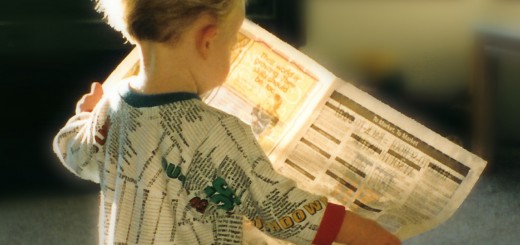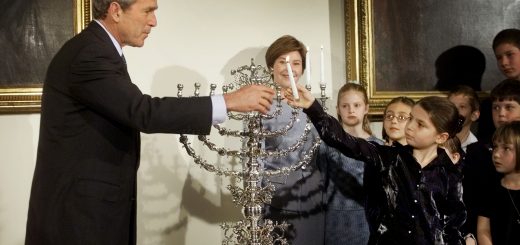Sharing Israel’s Best

Around this time each year, dozens of cities host “Honor Israel” nights, in which Christian friends of Israel gather to show their support for Israel and the Jewish people. The folks in Grand Rapids, Michigan invited two Jewish speakers, who happened to hail from different ends of the Jewish religious continuum. It is hard to say whether this was by design. One was an Orthodox rabbi; the other a secular kibbutznik. Guess who conveyed the Torah and mussar?
Major Liron Shapira is a career IDF officer. After serving in a combat force, he was ready for new challenges, and joined the search-and-rescue (SAR) unit. (In the US, such work is primarily delegated to non-military authorities, but Israel is not alone in making it part of the work of the defense forces – and is well served by this arrangement, given the small geographical size of the country.) When the earthquake struck Haiti in January 2010, Liron deployed with the IDF team that was one of the most vaunted success stories of the international relief effort.
Liron was not in the States on a PR assignment for the IDF. He repeatedly and convincingly emphasized that the entire publicity enterprise is foreign to his nature and the conduct of his unit. He happened to be here, partnering with a US military unit, which he held in high esteem. In several ways, he struck a different figure than the Israeli spokespeople Americans often encounter. He was soft-spoken, tentative rather than certain, and strikingly humble. No airs or pretensions at all. All of this made his presentation devastatingly effective.
His AV presentation told the story of the entire operation as seen by the SAR people, as opposed to the medical personnel who took over once survivors were located and transported. Preserving footage of some of the most difficult extractions from the rubble demonstrated the competence of the Israeli team, but small vignettes that he included offered the greatest insight into the Israeli soul.
He showed pictures of back-slapping between members of different SAR teams, but also pointed out the differences between them. On one occasion, cutting through concrete was hampered by embedded iron rods. His platoon did not have the instrument they needed to proceed to a trapped survivor, but he knew of several others that did. He deliberately only went to groups that he knew possessed at least two of the tools. Nonetheless, each of them turned down his request to borrow the tool. Liron detected a certain casualness about human life even among these life-savers, with one exception. The US team shared the same regard for human life, he said. It was the only team that shared the same values. Liron’s voice expressed genuine anguish and child-like innocence in relating this and similar stories. How could people not respond to the opportunity to save a life?
Even in dealing with death, the different groups displayed their prejudices. He showed pictures of large buildings reduced to piles of rubble, with bodies openly lying within the debris days after the quake. No one stopped to cover them, until the Israelis chanced upon them. (A Medrash praises Dovid for returning to the battlefield the day after victory for the single purpose of burying the enemy dead.) Liron showed the last respects offered by the Chinese SAR team after they extracted a Chinese national who had not survived. They had pulled another body out at the same time. When the ceremony ended, the Chinese took their body away – and left the other one lying in the street.
The most poignant moment came at the end of a clip on the successful extraction of a Haitian buried for nine days beneath a collapsed building. After burrowing, cutting and chiseling, the Israelis found him, and began the arduous task of hauling a possibly injured man through a narrow passageway they had freed up. The crowd outside cheered “We love Israel” as they brought the man out to light he had not believed he would see again. His eyes strained against the light as he opened his eyes. The very first thing he saw was the face of the doctor peering down at him, probing his face for broken bones. The doctor was an Ethiopian Jew, sent half way around the world by “apartheid” Israel.
Liron disputed the image shared in the West of a Haiti of rampant crime and lawlessness. If it was true, he and his men had not seen it. The Haitians he met were cooperative and law-abiding. When the SAR work was completed, his men didn’t simply wait out the time till departure. They spent their last days providing needed services for the Haitians, like building latrines and water tanks. Liron showed one such tank, decorated by the Haitians after they had constructed it. It’s entire height had been painted in the form of two flags, side by side – one of the US, the other of Israel.
The overall impression that Liron left the audience was of some part of the Jewish soul that was common to all the participants of the team, religious and secular, Sephardi and Ashkenazi, men and women, young and old. This Jewish essence had intuitive and unwavering regard for the value of human life. Many of us are committed by faith to the idea of a quintessential spark of Yiddishkeit that resists being extinguished even by Jews far from conventional observance. Liron gave quiet but full-throated testimony to that spark. It was moving for the non-Jews to behold. It was moving for me.
(Liron later clouded the distinction between observant and non-observant, when the evening’s organizers got together after the event for some review and decompression. Our Christian hosts asked us the inevitable political questions. They were particularly saddened and concerned just hours after the President’s “1967 borders” speech. One of them said something about the necessary role of G-d in protecting His people. Liron did not reject this, but mused about how this would play out according to different conceptions of “hashgacha peratit vs. hashgacha kelalit!”)
If the audience was awed by his presentation, I was cowed. The hour was late, his (long!) presentation was an impossible act to follow, and yet I was billed as the main speaker and could not simply wish everyone a good evening. The organizers had provided me with the opposite but matching role. Liron had made them feel good; my job was to make them feel anxious about Israel’s future. They had asked me to provide a detailed analysis of the Palestinian war to delegitimize Israel known as BDS – Boycott, Divestment, Sanctions. They understood that the Simon Wiesenthal Center would have something to say about the topic, and they were correct. I made the best of a difficult situation by beginning with a succession of jokes, not one of which bombed, which is a miracle in and of itself. Baruch Hashem, the strategy worked, and I was able to hold their attention – and hopefully motivate them to further action – for a full forty-five minutes.
As I always try to do, I made ample reference to HKBH and our commitment to Him. My presentation went very well, but in regard to conveying Torah values an kiddush Hashem, I didn’t come close to a secular Israeli who wasn’t even trying.
Mi ke-amchah Yisrael!
[Postscript: In subsequent correpondance with Liron, he shared his family genealogy. He directly descends from R Pinchas Koritzer. Going back a good deal further, he traces his lineage to the Megalah Amukos. I pointed out the elegant irony of this to him – that a descendant of the Megaleh Amukos was revealing the whereabouts of people hidden under rubble.]




Thank you for this post, Rabbi Adlerstein.
Rabbi Adlerstein: Could you post the contents of your presentation? I am sure I am not the only reader interested.
[YA – You give me too much credit. I don’t have a record of the contents. I almost never script my remarks in advance. I spoke from an outline, the meaning of which would remain obscure to anyone I shared it with. The best I can do is offer a substitute backgrounder on BDS: http://www.stopbds.com/?page_id=549
as usual, a moving worthy article
don’t you think that more credit should be given to the fact that Zahal, and Israeli-secular-society in general, consciously teach, and live, Jewish ethics .
Your ascribing the kiddush hashem to inate , inherited , Jewish traits, [ ala Kuzari] implies that such behavior occurs spontaneously . I am skeptical.
and Israeli-secular-society in general, consciously teach, and live, Jewish ethics .
…That leaves one scratching their head.